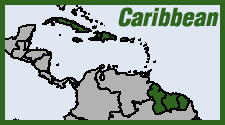 At the semi-annual summit of the Caribbean Community (CARICOM), held July 1-4 in Antigua, regional leaders agreed to establish a commission to review marijuana policy and assess the need for reforms. The communiqué issued at the conclusion of the meeting stated: "Heads of Government agreed to establish a Regional Commission on Marijuana to conduct a rigorous enquiry into the social, economic, health and legal issues surrounding marijuana use in the Region and to advise whether there should be a change in the current drug classification of marijuana, thereby making the drug more accessible for a range of users." Prime Minister Ralph Gonsalves of St. Vincent and the Grenadines, who pushed to get the issue on the agenda as chair of CARICOM, said: "It seems to me counterproductive to ignore the potential of an industry in respect of medical marijuana and to continue to expend police, national security, court resources on persons who consume a minuscule amount of marijuana in the privacy of their homes." (Drug Policy, July 7)
At the semi-annual summit of the Caribbean Community (CARICOM), held July 1-4 in Antigua, regional leaders agreed to establish a commission to review marijuana policy and assess the need for reforms. The communiqué issued at the conclusion of the meeting stated: "Heads of Government agreed to establish a Regional Commission on Marijuana to conduct a rigorous enquiry into the social, economic, health and legal issues surrounding marijuana use in the Region and to advise whether there should be a change in the current drug classification of marijuana, thereby making the drug more accessible for a range of users." Prime Minister Ralph Gonsalves of St. Vincent and the Grenadines, who pushed to get the issue on the agenda as chair of CARICOM, said: "It seems to me counterproductive to ignore the potential of an industry in respect of medical marijuana and to continue to expend police, national security, court resources on persons who consume a minuscule amount of marijuana in the privacy of their homes." (Drug Policy, July 7)

 The US Supreme Court issued a key ruling in favor of Fourth Amendment rights in the digital age June 25, finding unanimously that police in most cases need a warrant before searching the cellphone or personal electronic device of an arrestee. Chief Justice John Roberts firmly rejected arguments that searches of digital devices are comparable to searches police routinely carry out for contraband after making an arrest. In the cases of
The US Supreme Court issued a key ruling in favor of Fourth Amendment rights in the digital age June 25, finding unanimously that police in most cases need a warrant before searching the cellphone or personal electronic device of an arrestee. Chief Justice John Roberts firmly rejected arguments that searches of digital devices are comparable to searches police routinely carry out for contraband after making an arrest. In the cases of 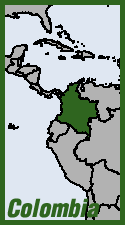 Colombia’s government and the FARC guerilla organization announced an agreement May 16, entitled "Solution to the Problem of Illicit Drugs," in which they pledge to work together agianst the narco trade. The FARC, whose top leaders face extradition to the United States on trafficking charges, agreed to "end any relationship" with the illicit drug trade, and cooperate in a "National Program for the substitution of the illicit uses of coca, poppy, and marijuana crops." The accord calls for "integral development plans" for rural communities impacted by the drug trade, to be drawn up with the participation of those communities, in the context of an "Integral Rural Reform." It also calls for an international conference to be held under the auspices of the UN to reconsider global strategies against drugs—the one veiled reference in the agreement to the FARC's
Colombia’s government and the FARC guerilla organization announced an agreement May 16, entitled "Solution to the Problem of Illicit Drugs," in which they pledge to work together agianst the narco trade. The FARC, whose top leaders face extradition to the United States on trafficking charges, agreed to "end any relationship" with the illicit drug trade, and cooperate in a "National Program for the substitution of the illicit uses of coca, poppy, and marijuana crops." The accord calls for "integral development plans" for rural communities impacted by the drug trade, to be drawn up with the participation of those communities, in the context of an "Integral Rural Reform." It also calls for an international conference to be held under the auspices of the UN to reconsider global strategies against drugs—the one veiled reference in the agreement to the FARC's 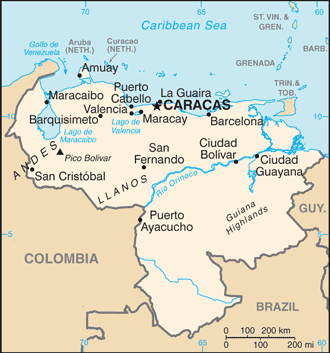 At least two people were shot dead Feb. 12 in student protests in the Venezuelan capital, Caracas. An anti-government protester and a pro-government activist were each killed in an exchange of fire as rival demonstrators clashed, officials said. "He was a comrade assassinated by the right-wing fascist hordes," National Assembly leader
At least two people were shot dead Feb. 12 in student protests in the Venezuelan capital, Caracas. An anti-government protester and a pro-government activist were each killed in an exchange of fire as rival demonstrators clashed, officials said. "He was a comrade assassinated by the right-wing fascist hordes," National Assembly leader 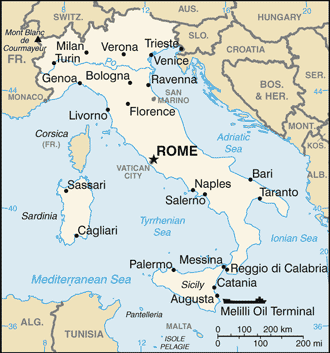 A 15-count indictment was unsealed Feb. 11 in a Brooklyn federal court, charging seven defendants with narcotics trafficking, money laundering, and firearms offenses based on what an
A 15-count indictment was unsealed Feb. 11 in a Brooklyn federal court, charging seven defendants with narcotics trafficking, money laundering, and firearms offenses based on what an 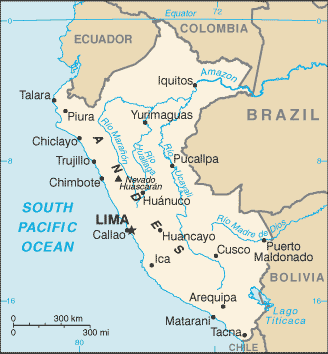 Peru's National Police on Feb. 4 announced the discovery of over 100,000 cannabis plants at the high Andean community of Minasel, 4,000 meters above sea level, on the border of Áncash and Huánuco regions. The plants were burned in the fields, polce said, while the growers escaped into the mountains. (
Peru's National Police on Feb. 4 announced the discovery of over 100,000 cannabis plants at the high Andean community of Minasel, 4,000 meters above sea level, on the border of Áncash and Huánuco regions. The plants were burned in the fields, polce said, while the growers escaped into the mountains. (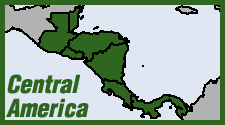 El Salvador's Feb. 2 presidential election was overshadowed by a dramatic spike in the country's homicide rate—less than a year after a truce between warring criminal gangs had led many Salvadorans to hope that their country was back from the brink. Most alarming was the December discovery of 44 bodies in 14 mass graves in a wooded area of Villa Lourdes barrio in Colón, a suburb of the capital San Salvador and a notorious gang stronghold. Many of the bullet-ridden bodies were mutilated and half-naked. Authorities accuse the Barrio 18 gang of depositing their victims in the clandestine graves. A March 2012 truce between Barrio 18 and its deadly rivals, Mara Salvatrucha (
El Salvador's Feb. 2 presidential election was overshadowed by a dramatic spike in the country's homicide rate—less than a year after a truce between warring criminal gangs had led many Salvadorans to hope that their country was back from the brink. Most alarming was the December discovery of 44 bodies in 14 mass graves in a wooded area of Villa Lourdes barrio in Colón, a suburb of the capital San Salvador and a notorious gang stronghold. Many of the bullet-ridden bodies were mutilated and half-naked. Authorities accuse the Barrio 18 gang of depositing their victims in the clandestine graves. A March 2012 truce between Barrio 18 and its deadly rivals, Mara Salvatrucha (





Recent comments
4 weeks 1 day ago
5 weeks 1 day ago
5 weeks 1 day ago
6 weeks 4 days ago
11 weeks 5 days ago
14 weeks 1 day ago
19 weeks 1 day ago
31 weeks 1 day ago
33 weeks 2 days ago
34 weeks 2 days ago